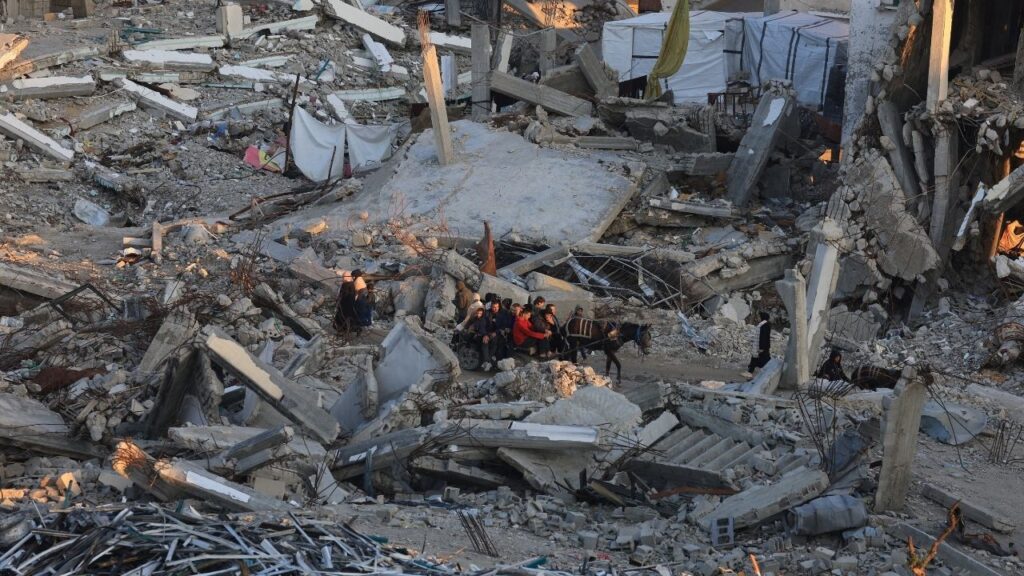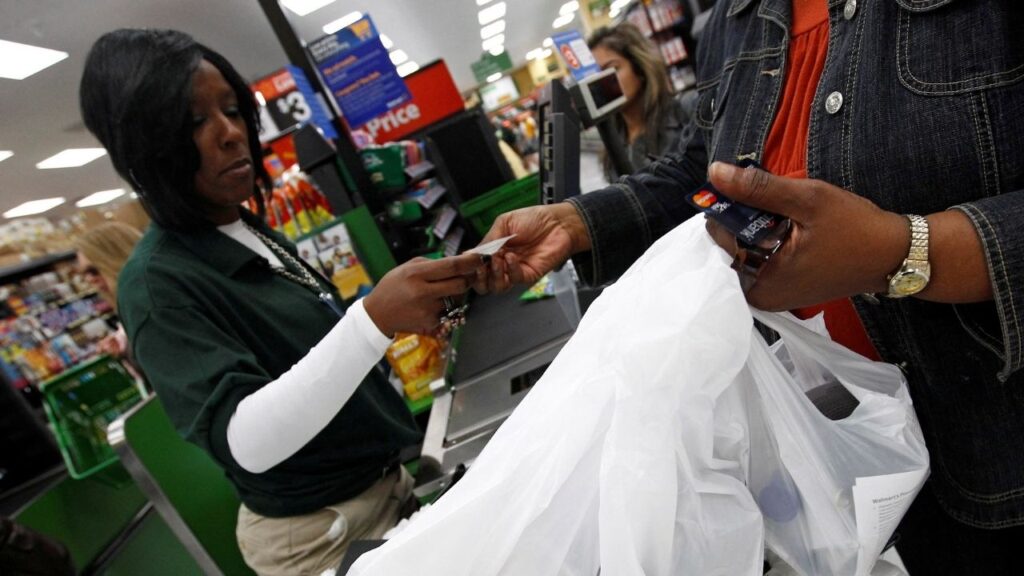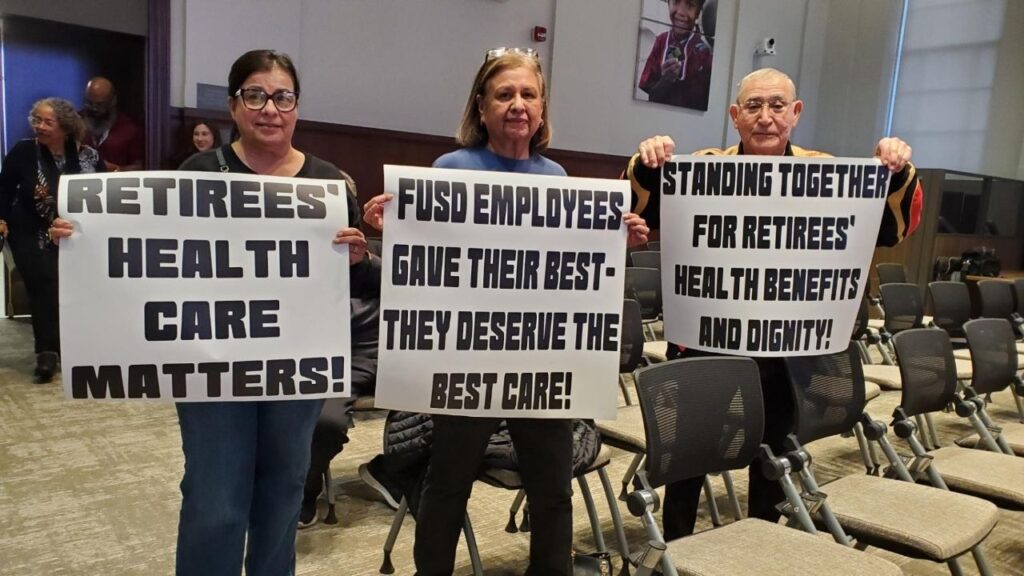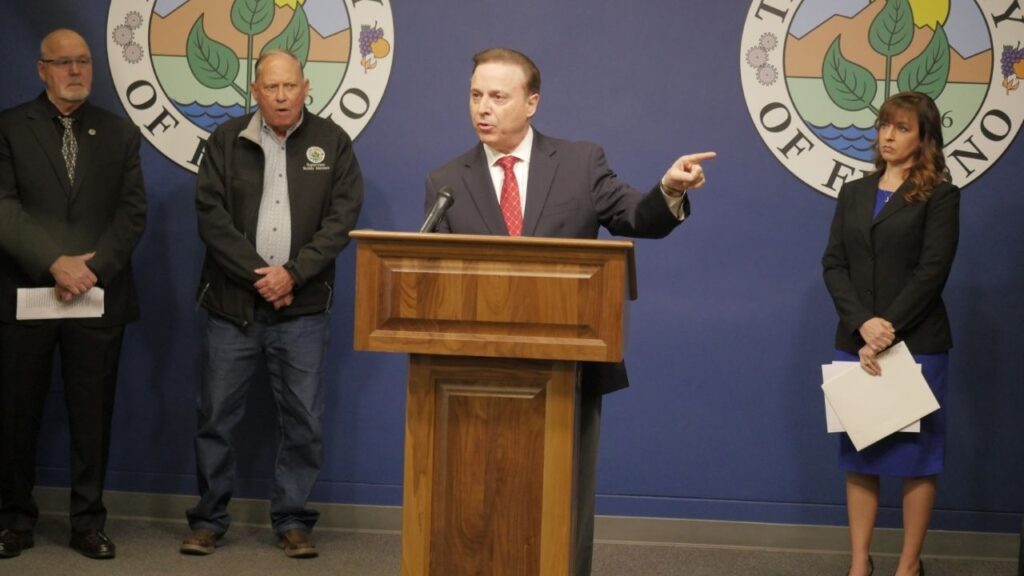Claire Afflerbach, whose family had lived on their property since her grandfather arrived there in the 1940s, during a community meeting at Cedar Grove Park in Chico, Calif., July 28, 2024. Many who fled the fire in California have been anxiously waiting to hear whether their houses are still standing. Others are grappling with news of homes and barns leveled by flames. (Daniel Dreifuss/The New York Times)

- Over 8,000 residents in Northern California, including Paul Mozzino, have evacuated due to the Park fire, which has burned 370,000 acres.
- Local food trucks and organizations, like TomTom’s Island Style, are providing food and supplies to evacuees.
- Many evacuees, such as Sherry Alpers and Claire Afflerbach, are in temporary shelters, unsure when they can return home.
Share
|
Getting your Trinity Audio player ready...
|
CHICO, Calif. — Paul Mozzino was working an afternoon shift at a Trader Joe’s grocery store in Chico, California, last week when he heard a chorus of phones pinging simultaneously with alerts about a nearby wildfire.
“Oh God, not again,” Mozzino, who had evacuated from a fire before, recalled thinking at the time.
Citizens Flee Their Homes
Later that day, he learned that his home in Humboldt Highlands was under an evacuation order. So he packed his favorite guitars and enough clothes to last him roughly a week, and hit the road. After driving just a mile, he looked over the ridge and saw a fiery red landscape.
“It looked like a volcano,” he said, “like something out of ‘Hellraiser.’”
Mozzino, 63, is just one of over 8,000 residents in Northern California under evacuation orders, across Butte and Tehama counties, prompted by the rapidly spreading Park fire. The blaze has burned just more than 370,000 acres since it was ignited Wednesday. It is now the sixth-largest wildfire in state history.
Billows of orange-gray smoke and blustery flames have turned tree-lined roads and wooden homes into barren patches of dirt coated with ash. At least 109 structures have been destroyed, and about 4,200 were threatened. And the fire, which was about 12% contained early Monday, could possibly burn for several weeks.

Many Are in Limbo
Now, many evacuees in the area are in limbo: Some had hurriedly fled with few possessions. Many were roughing it out in temporary shelters or staying with family and friends. There is no clear timeline of when they will be allowed to go back home. And once they do, evacuees wonder, what will their neighborhoods look like?
For some, the answer to that question has already become painfully clear.
Claire Afflerbach, 26, had promptly evacuated to her mother-in-law’s home in Durham, California. She remembers frantically putting her family in the car, as well as her five dogs, a cat, a pigeon and a turtle. “After getting all of our zoo together, we didn’t have much time,” she said.
Afflerbach — who works for a company that provides fire safety equipment and services — and her family have lived on their 20-acre property in Cohasset since the 1940s. Much of the property was destroyed, including her home and five barns built by her grandfather.
Nala Espinoza’s home near Cohasset was also among the structures that were consumed by the wildfire. Espinoza, 22, a student at Butte College, said all that remained of her home were the few belongings she could bring with her in two garbage bags. She escaped Wednesday with her five cats, four dogs and four other housemates who had been alarmed by the white clouds of smoke hovering above their home.
“Living in Cohasset, you don’t hear sirens a lot,” Espinoza said, referring to ones she heard when she evacuated. “I can still hear the sirens. I try not to hear it when I go to sleep.”
On Saturday, Espinoza was sitting on a picnic table on a gravel and dirt lot in Chico, where TomTom’s Island Style food truck was parked. The lot, which owners of the food truck rent, became a gathering spot for Cohasset residents who had evacuated.
Local Food Truck Offered Food to Evacuees
When news of the evacuation orders broke, Tom Chamberlain, who co-owns the food truck, wanted to offer food in the lot to those who were displaced. Since then, another food truck, local organizations and other residents have joined, bringing donations of food, water, money and clothes. On Saturday, about a dozen bags of clothes were up for grabs, and there was a table with items like chips, granola bars, baby wipes and toothbrushes.
Jamie Chamberlain, Tom Chamberlain’s wife, said the food truck fed about 180 people Saturday. “They’ve all been crying and hugging each other,” she said.
Still, several were uneasy about the fate of their homes. Next to Espinoza on the picnic table was Anthony Flamini, 37, who was unsure whether his home on Mud Creek Road in Cohasset would survive.
“Every year we do what we can to protect our community, but sometimes efforts aren’t enough,” Flamini said. As soon as a nearby town received an evacuation warning, he added, “I think everybody said, ‘We are in trouble.’”
At Neighborhood Church in Chico, which was serving as an evacuation center, about a dozen people who fled, mostly from Magalia and Paradise, could be seen seeking refuge under the shade of trees.
Some Are Living in RVs and Cars
Sherry Alpers, 74, of Forest Ranch, was one of a handful of evacuees temporarily living out of RVs and cars in the church’s parking lot. She said she opted to remain in her vehicle so she could stay with her 12 dogs.
“We got a warning to evacuate and went with the warning. I didn’t want to take a chance,” Alpers said. “In 15, 20 minutes we were out of there. We didn’t grab hardly anything.”

The Park fire has been burning for several days, but experts have warned that it could continue to spread for much longer. Daniel Swain, a climate scientist at UCLA, said another heat wave was forecast in the area this week, which could make it more difficult for firefighters to contain the blaze. He said it could burn for weeks or months.
With uncertainties looming around the fire, those who have lost their homes are grappling with their own futures.
When Afflerbach started packing to flee, she thought she and her family would be gone for only one night. But now, “we don’t have many answers on when we’re able to get back up there,” she said.
“We’re just tying to raise enough money for a trailer or something to stay in,” she added.
–
This article originally appeared in The New York Times.
By Almendra Lawrence and Eduardo Medina/Daniel Dreifuss
c.2024 The New York Times Company
RELATED TOPICS:
Categories

Registration Deadline for Fresno County Wells Is Extended

Fresno County Fatal Crash on Auberry Road Leads to Arrest
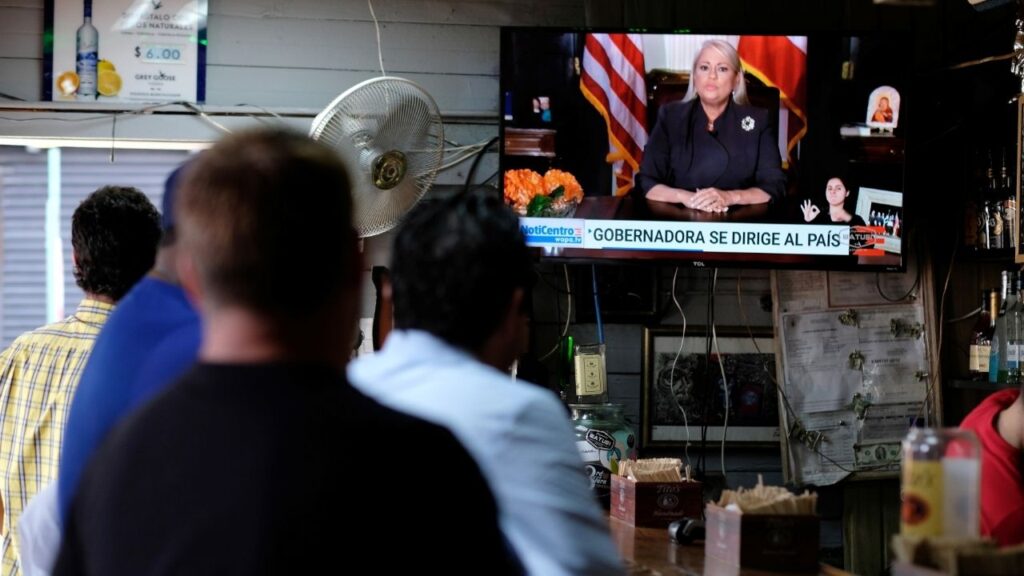
Trump Pardons Former Puerto Rico Governor Vazquez







